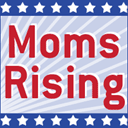It's not often the New York Times gets a story wrong. But this time they did. Well, maybe it wasn't all wrong, but it certainly wasn't completely right.
Today's article suggesting that women are leaving the workforce in droves because of our bad economy just didn't dig deep enough. While I'm sure our declining economy has exacerbated this 8-year trend of women leaving the workforce, it's certainly not the sole cause.
Let's take a walk through the article, shall we?
"Indeed, for the first time since the women’s movement came to life, an economic recovery has come and gone, and the percentage of women at work has fallen, not risen, the Bureau of Labor Statistics reports. Each of the seven previous recoveries since 1960 ended with a greater percentage of women at work than when it began.
When economists first started noticing this trend two or three years ago, many suggested that the pullback from paid employment was a matter of the women themselves deciding to stay home — to raise children or because their husbands were doing well or because, more than men, they felt committed to running their households."
Oh, yes, so true, especially for professional women. At the turn of the century, thousands of highly-educated women simultaneously had a sudden urge to throw away their hard-earned degrees and high-paying jobs, don an apron and stay home with the kids. "I'm so happy that Hubby is doing well," they sang as they happily cleaned their homes, folded laundry and baked cookies, "Now I can fulfill my life-long dream of becoming a domestic goddess."
"But now, a different explanation is turning up in government data, in the research of a few economists and in a Congressional study, to be released Tuesday, that follows the women’s story through the end of 2007.
After moving into virtually every occupation, women are being afflicted on a large scale by the same troubles as men: downturns, layoffs, outsourcing, stagnant wages or the discouraging prospect of an outright pay cut. And they are responding as men have, by dropping out or disappearing for a while.
'When we saw women starting to drop out in the early part of this decade, we thought it was the motherhood movement, women staying home to raise their kids,” Heather Boushey, a senior economist at the Joint Economic Committee of Congress, which did the Congressional study, said in an interview. “We did not think it was the economy, but when we looked into it, we realized that it was.'"
Did they say that this was a Congressional report? Would this be the same Congress that scuttled anti-discriminatory legislation like the Fair Pay Act and family-friendly policies for federal employees like the Federal Employees Paid Family Leave Act just this year? Yes, surprisingly, I think it is. Hmmm...let's look at another passage...
"Wage stagnation often discourages them from pursuing new jobs, says Lawrence Katz, a labor economist at Harvard. “While pay was rising solidly in the 1990s, you had women continuing to move into the work force,” Mr. Katz said.
Pay is no longer rising smartly for women in the key 25-to-54 age group. Just the opposite, the median pay — the point where half make more and half less — has fallen in recent years, to $14.84 an hour in 2007 from $15.04 in 2004, adjusted for inflation, according to the Economic Policy Institute. (The similar wage for men today is two dollars more.)
Not since the 1970s has that happened to women for so long a stretch — and because this is a new experience for them, “women may be even more reluctant than men to accept declining wages,” said Nancy Folbre, an economist at the University of Massachusetts."
Ok, let's cut to the chase and look at this point a different way. Decreasing and unequal wages + skyrocketing daycare costs + rising work hours + inflexible work policies (none of which the article mentions) that are completely counterproductive to raising a family or simply maintaining sanity = why the hell should I kill myself for little to no gain? Now that's the formula for why women are leaving the workforce in droves and not coming back.
That's the story I wish economists would look at and the story the New York Times should write about.








1 comment:
You have hit the nail.
Post a Comment